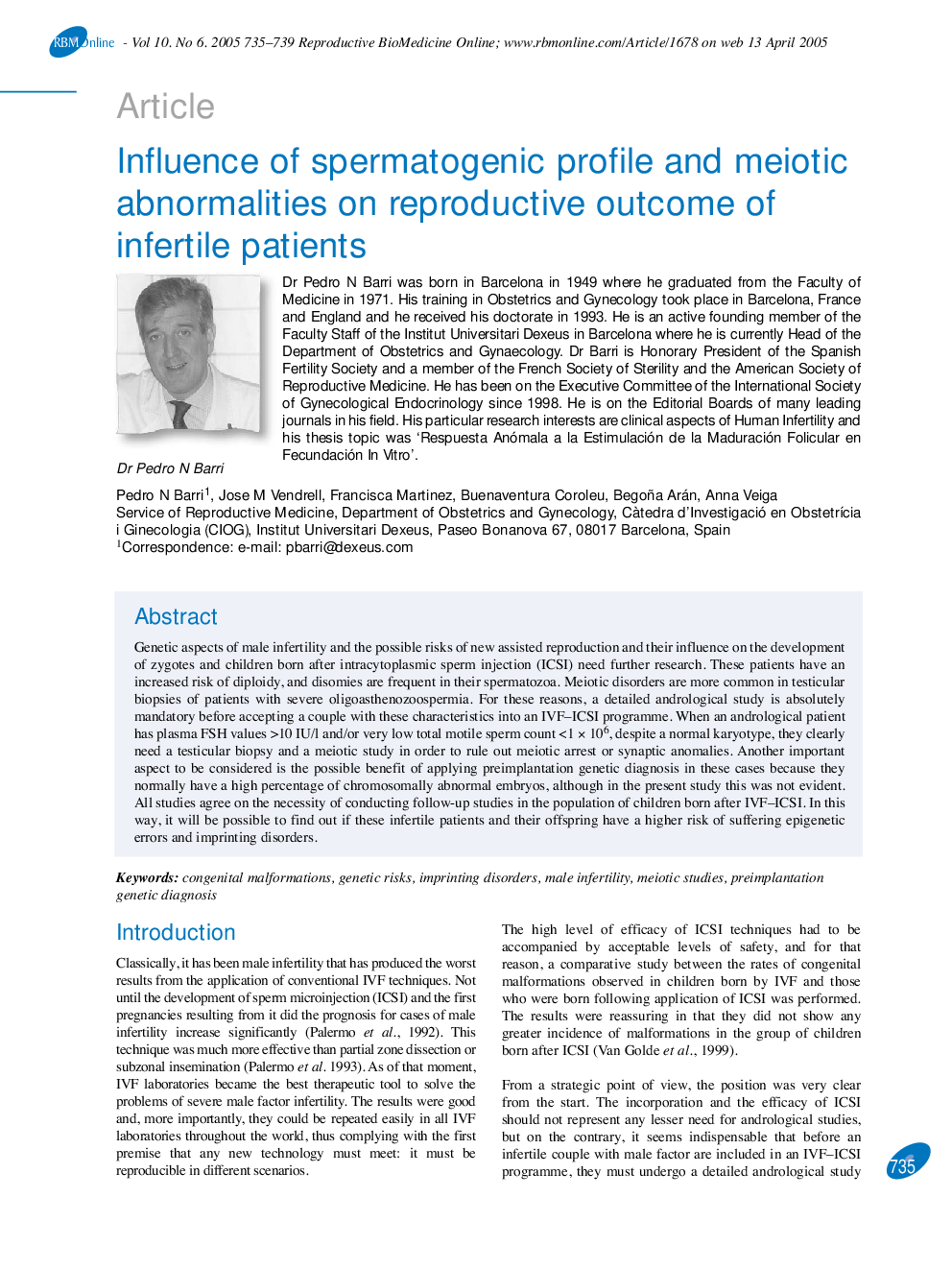| Article ID | Journal | Published Year | Pages | File Type |
|---|---|---|---|---|
| 9334852 | Reproductive BioMedicine Online | 2005 | 5 Pages |
Abstract
Genetic aspects of male infertility and the possible risks of new assisted reproduction and their influence on the development of zygotes and children born after intracytoplasmic sperm injection (ICSI) need further research. These patients have an increased risk of diploidy, and disomies are frequent in their spermatozoa. Meiotic disorders are more common in testicular biopsies of patients with severe oligoasthenozoospermia. For these reasons, a detailed andrological study is absolutely mandatory before accepting a couple with these characteristics into an IVF-ICSI programme. When an andrological patient has plasma FSH values >10 IU/l and/or very low total motile sperm count <1 Ã 106, despite a normal karyotype, they clearly need a testicular biopsy and a meiotic study in order to rule out meiotic arrest or synaptic anomalies. Another important aspect to be considered is the possible benefit of applying preimplantation genetic diagnosis in these cases because they normally have a high percentage of chromosomally abnormal embryos, although in the present study this was not evident. All studies agree on the necessity of conducting follow-up studies in the population of children born after IVF-ICSI. In this way, it will be possible to find out if these infertile patients and their offspring have a higher risk of suffering epigenetic errors and imprinting disorders.
Related Topics
Health Sciences
Medicine and Dentistry
Obstetrics, Gynecology and Women's Health
Authors
Pedro N Barri, Jose M Vendrell, Francisca Martinez, Buenaventura Coroleu, Begoña Arán, Anna Veiga,
